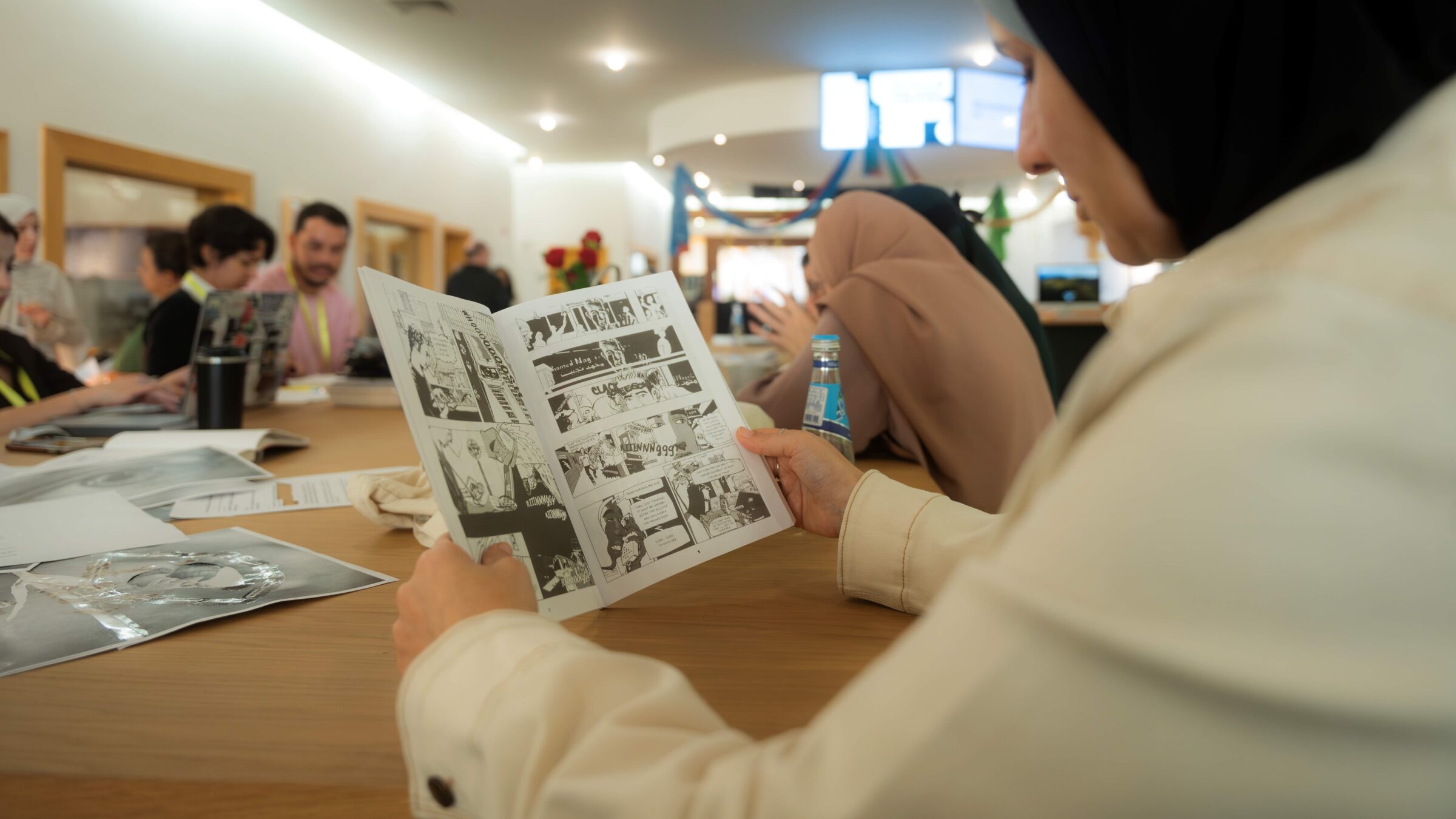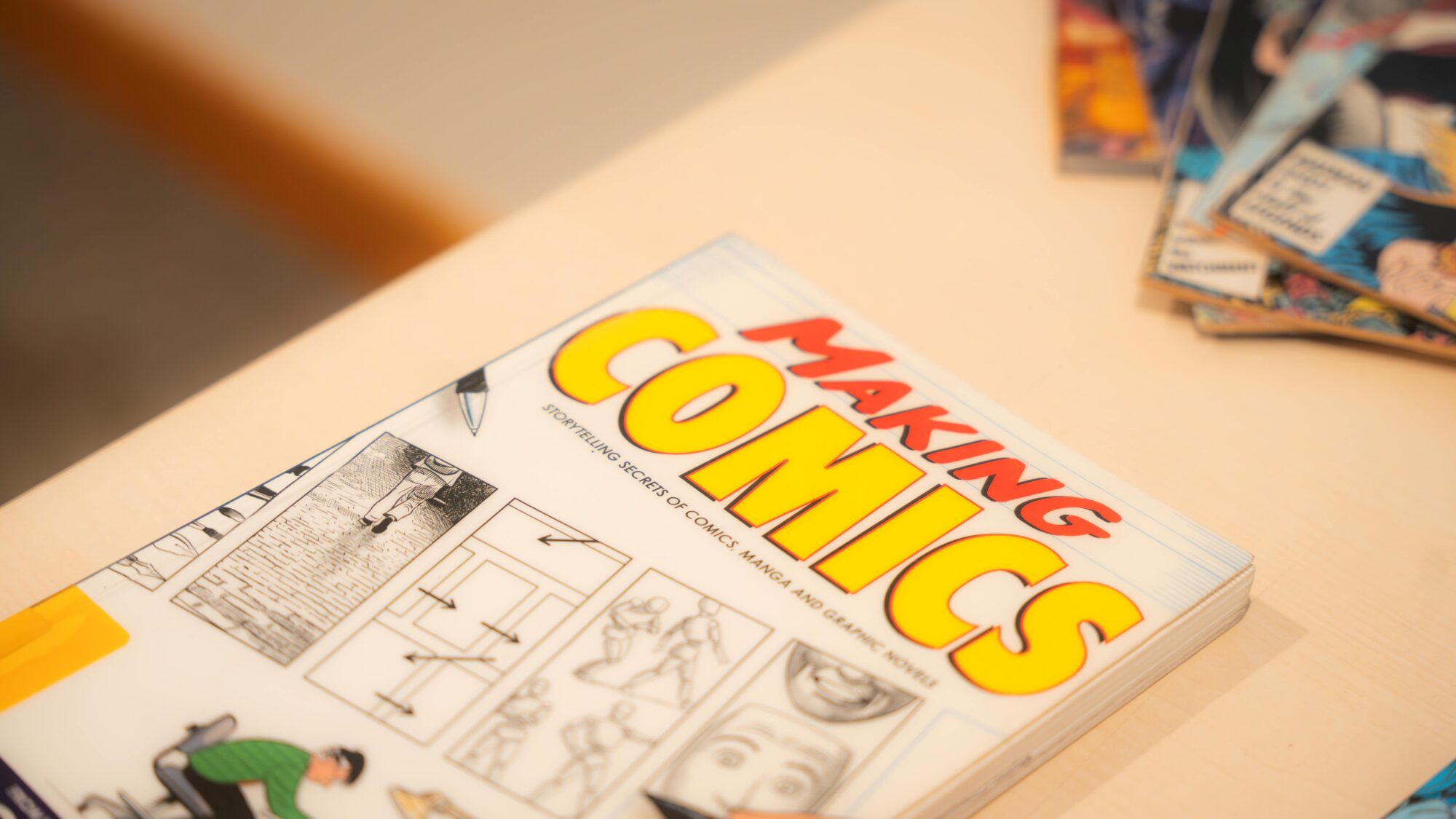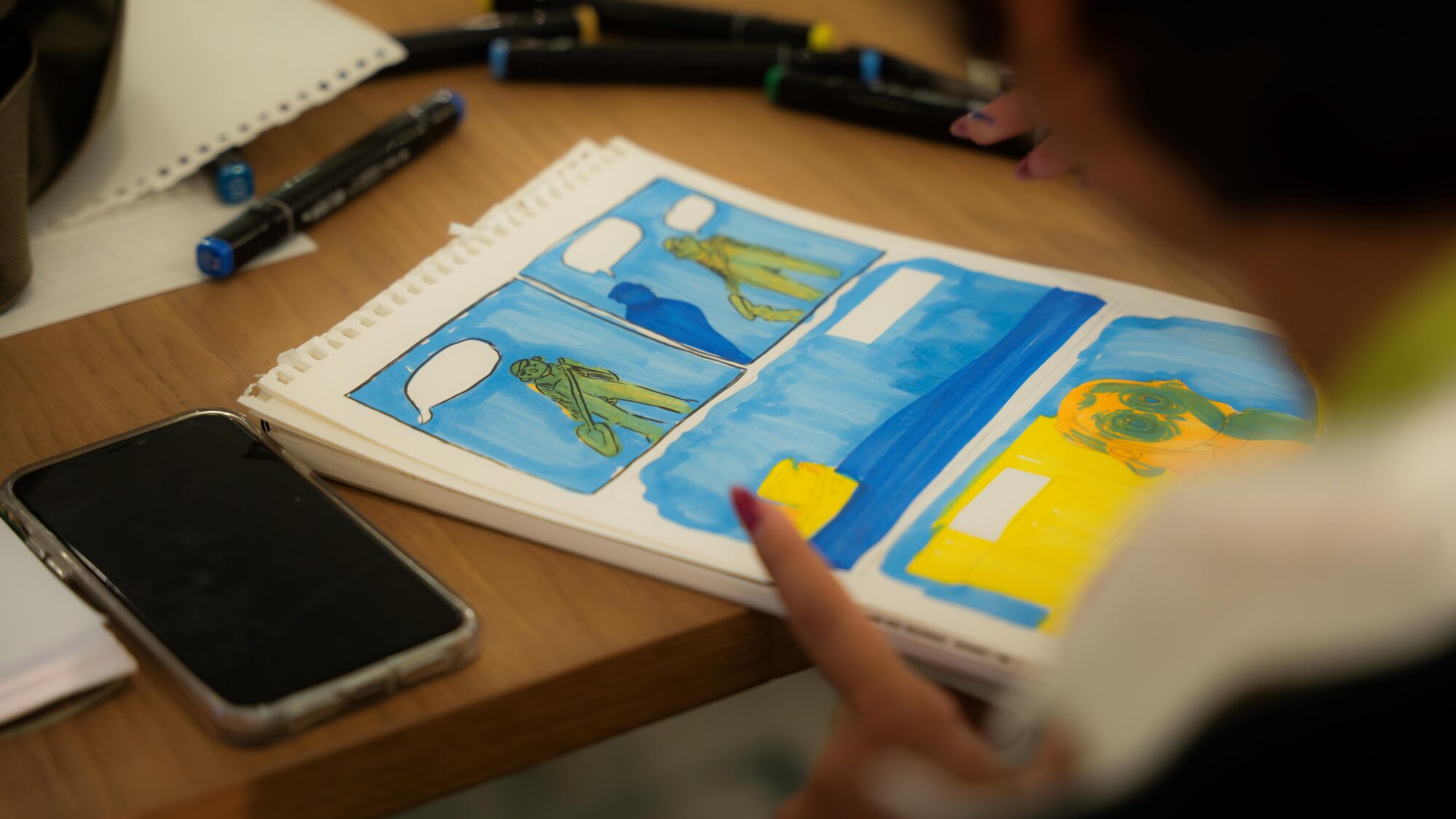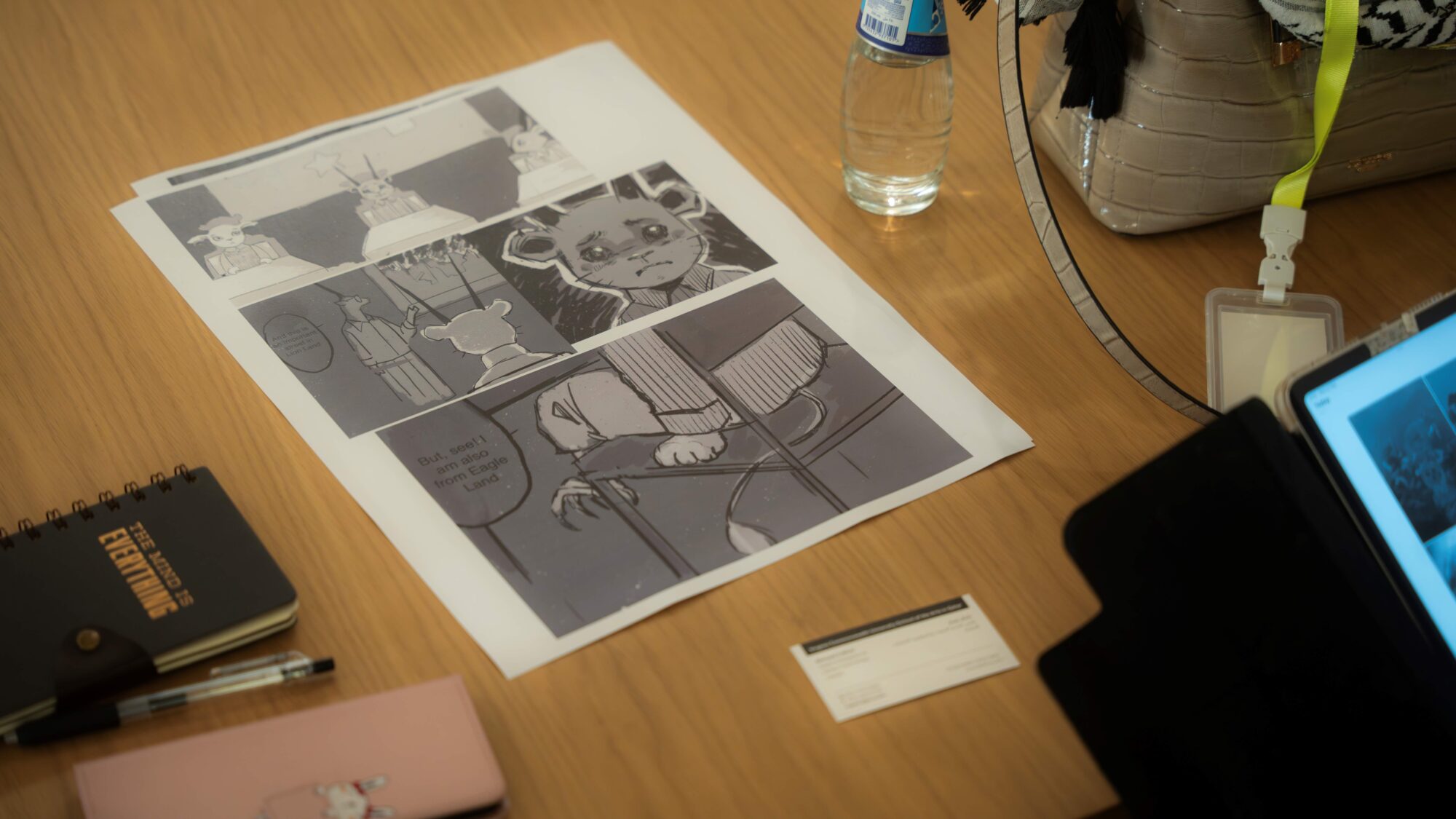- Academics
- Admissions & Enrollment Services
- Research
- Academic & Creative Spaces
- Strategic Partnerships
- Our Impact
- Student Affairs
- Campus & Community

From ideation and storyboarding to scriptwriting and visualization, QF partner university’s three-day workshop was a huge success.
A football coach, a psychologist, a musician and an aspiring journalist – in addition to the expected attendee profile of graphic designers and artists, these were just some of the other professionals who participated in the first Comics Retreat to be hosted by Virginia Commonwealth University School of the Arts in Qatar recently.
The diversity of backgrounds and professions of the participants reminded one of the evergreen and universal appeal of comic books – even in a digital landscape dominated by complex animation, special effects, and computer-generated imagery.
The three-day retreat was organized by the Comics Lab, a research lab under the Institute for Creative Research at VCUarts Qatar, led by Michael Wirtz, Head of Research and Library Technology, and Leland Hill, Assistant Professor of Graphic Design, at VCUarts Qatar.
The retreat was led by Dr. S J Sindu (Sinduja Sathiyaseelan), Assistant Professor of Creative Writing, and Dr. Geoff Bouvier, Instructor, both from the Department of English at VCU, Richmond.

A textbook referenced during the workshop.

Artwork in progress by one of the participants.

Artwork created by one of the participants.
Explaining the inspiration behind the lab, and the retreat, Wirtz said, “Part of the Comics Lab’s mission is to facilitate the production of comic and sequential art featuring voices and narratives of Qatar and the people who live here. Generally, when narratives of this region are depicted in comics, they are either stereotypical of how Western cultures view the people who live here, or they feature orientalist tropes that do not reflect the voices of the people who live here. Not only do we want to collect the authentic graphic narratives being produced in the region, or by people from the region, we want to encourage the creative community to create their own narratives.”
He continued, “For this retreat, we chose the theme of “Third Culture Kids” due to the ubiquity of that experience in Qatar. Most people who live in Qatar have some experience with living or working in a culture that is different from that of their “home” or family’s culture. How people negotiate that experience can generate authentic narratives that can be shared through comic and sequential art.”
Wirtz observed that the success of the first iteration of the retreat demonstrates that many people believe that comics may be a viable way of communicating those stories.
He said, “Comics aren’t just stories about superheroes in tights and masks. They can be a powerful medium to depict complex characters and stories.”
He also noted how as a format, comics may forge a stronger connection between the story, the characters and the readers.
He said, “Unlike certain types of media where the narrative is fed to the reader, in reading a comic, the reader still has to participate in generating the narrative. For instance, the panel structure – the frames that contain the images – of a comic is similar to that of a film. However, unlike a film, the reader controls how quickly that narrative is consumed.
One of the participants, Gilson de Souza, a football coach at Aspire Academy, said he always enjoyed reading comics and fiction both as a child and an adult.
He said, “At a certain point in my life, I started playing Dungeons and Dunes and other role-playing games which involved creating worlds, characters and stories. This sparked my love for creative writing, and I began to write.
“Since childhood, I’ve had two sides: a ‘geek’ side that loved stories, and an athletic side, influenced by my dad steering me more towards sports. This led me to my current career as a football coach. However, I never considered my creative side as something that could develop into a profession or even a hobby. Hence this journey of rediscovering this part of myself through this comic retreat has been deeply important to me as a person.”

During the workshop, participants had ample opportunities to work both individually and in groups and share feedback on work produced during the retreat.
Anna Luisa Almeida, a Brazilian psychologist who attended the workshop, said she found the topics and sessions to be highly interactive and engaging.
She said, “The workshop kicked off with a discussion of the main theme, which was ‘Third Culture Kids’. I feel the topic was excellent, because it was something most of us could relate to, given the large number of expats in Qatar. Our final comics focused on this theme, and it was essential for everyone to share ideas.”
She added, “In our introduction to script writing for comic books, I realized it was quite different from other forms of scripts. Our instructors shared tips and examples that we could refer to. For instance, Sindu, one of the retreat instructors, advised me to refer to Neil Gaiman’s scripts for ‘Sandman’. We also learned about the technical terms used in the design of comic spreads, the importance of the kind of media in which your comic will be read – paper or digital – and explored graphic poems.”
In 2021, the VCUarts Qatar Art and Design Library, the library of the Qatar campus of Virginia Commonwealth University, in Richmond, decided to establish a dedicated Comics Lab to foster further exploration within the medium – particularly in the creation, consumption and themes of comic books in the region. Although the Lab is currently building its resources to meet the research and educational needs of the school, it has also embarked on a second phase of its conception – one of coordinating the dissemination of comic and sequential art from the region.

